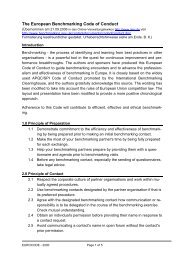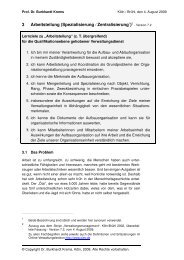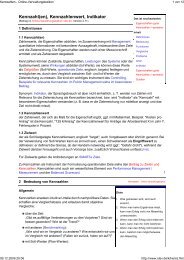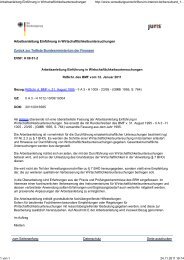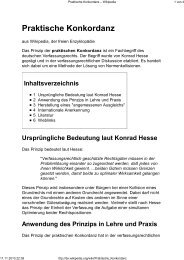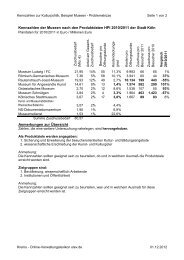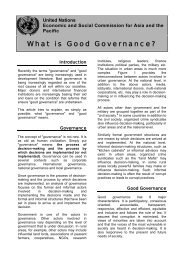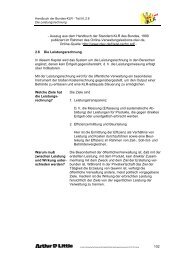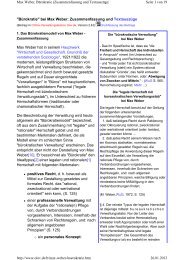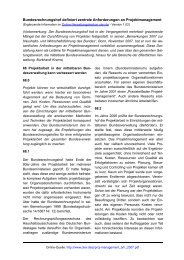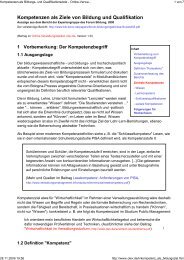Strategy Survival Guide
Strategy Survival Guide
Strategy Survival Guide
Create successful ePaper yourself
Turn your PDF publications into a flip-book with our unique Google optimized e-Paper software.
References<br />
Many of the frameworks in this short piece have been drawn from "Exploring Strategic Change" by Julia<br />
Balogun and Veronica Hope Hailey (Prentice Hall, 1999), which is a good source of further advice on these<br />
topics.<br />
"Exploring Corporate <strong>Strategy</strong>" by Gerry Johnson and Kevan Scholes. Chapter 11 on Managing Strategic<br />
Change provides pointers to successful change management.<br />
Effecting Change in Higher Education from the University of Luton contains articles, theories, tools, case<br />
studies and other materials related to change which draw on experience from inside and outside the HE<br />
sector.<br />
Change management<br />
In Practice: SU Waste Project<br />
This project was tasked by the Prime Minister with addressing what more could be done to reduce the<br />
growing quantities of municipal household waste going to landfill and to meet the EU Landfill Directive.<br />
In order to assess the scale of the challenge, and how the transition to a more sustainable waste<br />
management system could best be managed, the project was organised into a number of distinct<br />
phases.<br />
At the outset of the project in November 2001, a Waste Summit of key stakeholders from across central<br />
and local Government, the waste industry and NGOs was held. This provided valuable material on the<br />
scale and nature of the waste problem and options for overcoming it.<br />
A scoping note setting out the key issues to be addressed was published on the <strong>Strategy</strong> Unit web site<br />
in December 2001 and included a consultation page, inviting comment on the degree of change<br />
required. Following this, a series of workshops and bilaterals were held with stakeholders and experts<br />
to consult on the pros and cons of waste management options. Many stakeholders felt that the<br />
Government had made a start in tackling the waste problem (for example by introducing statutory<br />
recycling targets for local authorities) but that much more of a focus was required on delivery<br />
mechanisms if England was to meet the high diversion rates from landfill required by the EU Landfill<br />
Directive.<br />
The team then reviewed the economic and regulatory frameworks for waste management used by other<br />
nations. They found that there were significant lead times involved - countries which had developed<br />
sustainable waste management systems had taken 10-15 years to do so. This helped the team press<br />
the case for prompt action to address England's waste problems, despite the Landfill Directive not<br />
coming into effect until 2010.<br />
Some visits were made to local authorities to ask for their views on the main barriers to progress and<br />
the main options for taking forward more sustainable waste management. The most important<br />
elements of change that local authorities wanted to see included a new economic and regulatory<br />
framework (particularly a rise in the rate of landfill tax and reform of the Landfill Tax Credit Scheme to<br />
help incentivise and fund alternative waste treatment options).<br />
Community sector representatives were asked their views on how ready the public was for change.<br />
MORI was also commissioned to carry out some focus group research into public perceptions of the<br />
waste problem and attitudes towards reducing household waste and recycling. The project team found<br />
that the case for action was accepted by the public, who when presented with choices between different<br />
waste management options, wanted more opportunities to recycle. However, the public also said that<br />
the provision of more convenient recycling facilities would be key to their take-up. As a result,<br />
widespread kerbside recycling together with a national communications strategy became important<br />
facets of the report's recommendations.<br />
Throughout, the team also collated data from experts and developed models in order to analyse the<br />
costs and benefits of different options looking into the future.<br />
Drawing on the outcome of all these phases, the project team was able to work up and present a vision<br />
for sustainable waste management and a strategy for achieving it, including the change required to<br />
funding requirements, the economic and regulatory framework, and delivery structures.<br />
<strong>Strategy</strong> <strong>Survival</strong> <strong>Guide</strong> – <strong>Strategy</strong> Skills<br />
Page 185



